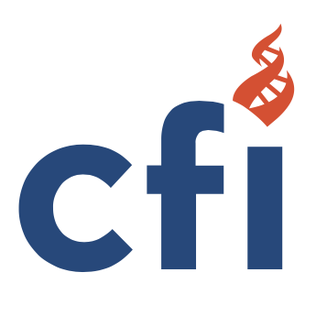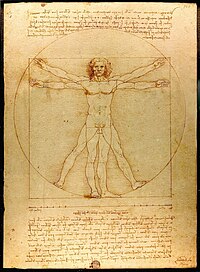
Secular humanism is a philosophy, belief system or life stance that embraces human reason, logic, secular ethics, and philosophical naturalism, while specifically rejecting religious dogma, supernaturalism, and superstition as the basis of morality and decision making.

Religious humanism or ethical humanism is an integration of nontheistic humanist ethical philosophy with congregational rites and community activity which center on human needs, interests, and abilities. Self-described religious humanists differ from secular humanists mainly in that they regard the nontheistic humanist life stance as a non-supernatural "religion" and organising using a congregational model.

Paul Kurtz was an American scientific skeptic and secular humanist. He has been called "the father of secular humanism". He was Professor Emeritus of Philosophy at the State University of New York at Buffalo, having previously also taught at Vassar, Trinity, and Union colleges, and the New School for Social Research.

The American Humanist Association (AHA) is a non-profit organization in the United States that advances secular humanism.
A Secular Humanist Declaration was an argument for and statement of support for democratic secular humanism. The document was issued in 1980 by the Council for Democratic and Secular Humanism (CODESH), now the Council for Secular Humanism (CSH). Compiled by Paul Kurtz, it is largely a restatement of the content of the American Humanist Association's 1973 Humanist Manifesto II, of which he was co-author with Edwin H. Wilson. Both Wilson and Kurtz had served as editors of The Humanist, from which Kurtz departed in 1979 and thereafter set about establishing his own movement and his own periodical. His Secular Humanist Declaration was the starting point for these enterprises.

Humanist Manifesto is the title of three manifestos laying out a humanist worldview. They are the original Humanist Manifesto, the Humanist Manifesto II (1973), and Humanism and Its Aspirations. The Manifesto originally arose from religious humanism, though secular humanists also signed.
A Humanist Manifesto, also known as Humanist Manifesto I to distinguish it from later Humanist Manifestos in the series, was written in 1933 primarily by Raymond Bragg and published with 34 signers. Unlike the later manifestos, this first talks of a new religion and refers to humanism as "the religion of the future." Nevertheless, it is careful not to express a creed or dogma. The document outlines fifteen affirmations on cosmology, biological and cultural evolution, human nature, epistemology, ethics, religion, self-fulfillment, and the quest for freedom and social justice. This latter, stated in article fourteen, proved to be the most controversial, even among humanists, in its opposition to "acquisitive and profit-motivated society" and its demand for an egalitarian world community based on voluntary mutual cooperation. The document's release was reported by the mainstream media on May 1, simultaneous with its publication in the May/June 1933 issue of the New Humanist.
Humanism and Its Aspirations is the most recent of the Humanist Manifestos, published in 2003 by the American Humanist Association (AHA). The newest one is much shorter, listing six primary beliefs, which echo themes from its predecessors:

The Happy Human is an icon that has been adopted as an international symbol of secular humanism. Created by Dennis Barrington, the figure was the winning design in a competition arranged by Humanists UK in 1965. Various forms of it are now used across the world by humanist organisations of all sizes including Humanists UK, Humanists International and The American Humanist Association (AHA).

The Secular Coalition for America is an advocacy group located in Washington D.C. It describes itself as "protecting the equal rights of nonreligious Americans."

The Center for Inquiry (CFI) is a U.S. nonprofit organization that works to mitigate belief in pseudoscience and the paranormal and to fight the influence of religion in government.

The Humanist Institute is a training program for leaders within the humanist, and secular humanist movement.

Humanism is a democratic and ethical life stance, which affirms that human beings have the right and responsibility to give meaning and shape to their own lives.

The following outline is provided as an overview of and topical guide to humanism:
Anthony B. Pinn is an American professor working at the intersections of African-American religion, constructive theology, and humanist thought. Pinn is the Agnes Cullen Arnold Professor of Humanities and Professor of Religious Studies at Rice University. He is founder and executive director of the Center for Engaged Research and Collaborative Learning in Houston, Texas, and Director of Research for the Institute for Humanist Studies in Washington, D.C.
Austin Dacey is an American philosopher, writer, and human rights activist whose work concerns secularism, religion, freedom of expression, and freedom of conscience. He is the author of The Secular Conscience: Why Belief Belongs in Public Life, The Future of Blasphemy: Speaking of the Sacred in an Age of Human Rights, and a 2006 New York Times op-ed entitled "Believing in Doubt," which criticized the ethical views of Pope Benedict. He is a representative to the United Nations for the International Humanist and Ethical Union and the creator and director of The Impossible Music Sessions.

Larry Jones is a retired chemist dedicated to the furthering of humanist thought. He is the founder and former president of the Institute for Humanist Studies, a founder of the Secular Coalition for America, and has been involved in numerous other humanist organizations.

Atheism in the African diaspora is atheism as it is experienced by black people outside of Africa. In the United States, black people are less likely than any other ethnic groups to be religiously unaffiliated, let alone identifying as atheist. The demographics are similar in the United Kingdom. Atheists are individuals who do not hold a belief in God or gods. Atheism is a disbelief in God or gods or a denial of God or gods, or it is simply a lack of belief in gods. Some, but not all, atheists identify as secular humanists, who are individuals who believe that life has meaning and joy without the need for the supernatural or religion and that all individuals should live ethical lives which can provide for the greater good of humanity. Black atheists and secular humanists exist today and in history, though many were not always vocal in their beliefs or lack of belief.










